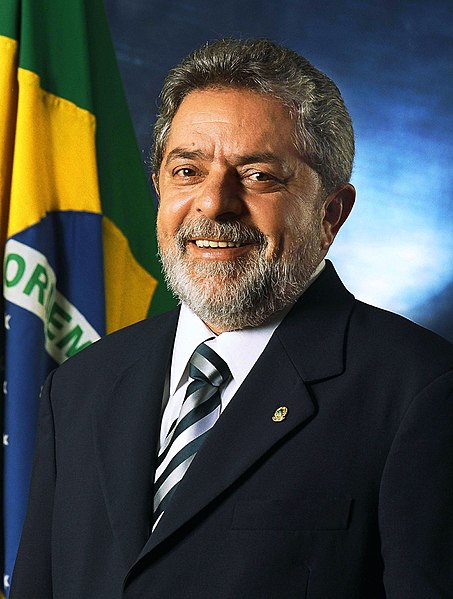The Workers' Party is a centre-left political party in Brazil that is currently the country's ruling party. Some scholars classify its ideology in the 21st century as social democracy, with the party shifting from a broadly socialist ideology in the 1990s, although the party retains a left-wing and marginal far-left faction to this day. Founded in 1980, PT governed at the federal level in a coalition government with several other parties from 1 January 2003 to 31 August 2016. After the 2002 parliamentary election, PT became the largest party in the Chamber of Deputies and the largest in the Federal Senate for the first time. With the highest approval rating in the history of the country at one time, President Luiz Inácio Lula da Silva was PT's most prominent member. Dilma Rousseff, also a member of PT, was elected twice but did not finish her second term due to her impeachment in 2016. The party came back to power with Lula's victory in the 2022 presidential election.

Lula, at the time a Federal Deputy, makes a speech at the 1988 Brazilian Constituent Assembly
Workers' Party regional branch in Belo Horizonte, Minas Gerais
Demonstration of the Central Única dos Trabalhadores (CUT) — Brazil's largest national trade union center — in Brasília. Both CUT and PT share the same origin and both organizations maintain a strong connection
Activists of the Landless Workers' Movement, one of the main social movements linked to the Worker's Party
2002 Brazilian general election
General elections were held in Brazil on 6 October 2002, with a second round of the presidential election on 27 October. The elections were held in the midst of an economic crisis that began in the second term of the incumbent president, Fernando Henrique Cardoso of the centre-right Brazilian Social Democracy Party (PSDB). Due to constitutional term limits, Cardoso was ineligible to run for a third consecutive term.
Image: Luiz Inácio Lula da Silva (cropped 2)
Image: Serra 02032007 2
Image: Luiz Inácio Lula da Silva
Image: Jose alencar 23 out 2007








